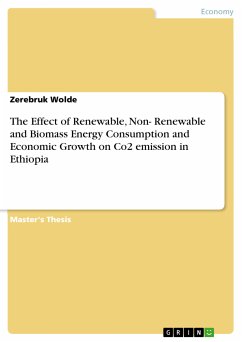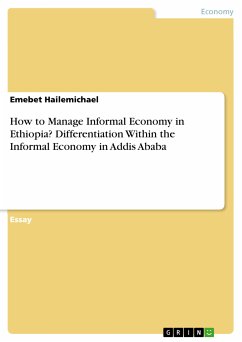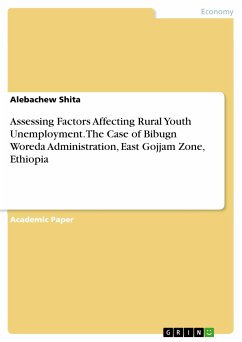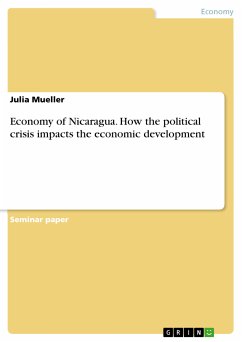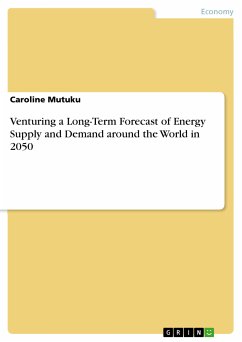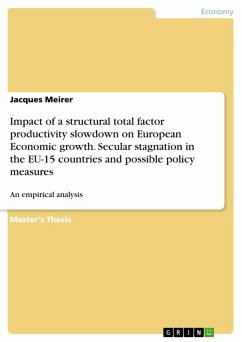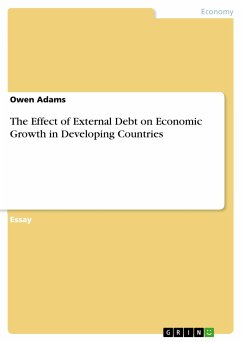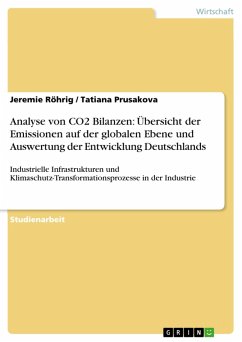Master's Thesis from the year 2017 in the subject Business economics - Economic Policy, grade: Very Good, Addis Ababa University (School of Economics), course: Economics, language: English, abstract: Recognizing the fact that the current reliance on traditional sources of energy is unsustainable, particularly from environmental grounds, the international community considers renewable sources of energy as a possible solution. But the effect of renewable and other sources of energy has to be evaluated in each country context separately. Hence the current study aim to examine the effect of consumption of energy from different sources (biomass, non-renewable and renewable) and economic growth on the emission of CO2 (the major gas emitted from the energy sector) in Ethiopia (a country embarking to modern renewable energy sources) using Autoregressive Distributive Lag (ARDL) methodological framework. Results of unit root test shows that all the variables are non-stationary in their level forms and stationary in their first difference. Bound test for co integration shows the existence of long run co integrating relationship among the variables. From the results, biomass energy is found to positively affect emission of CO2 in the long run. Non-renewable energy consumption also increases emission of the gas in both in the short run and long run significantly. In addition economic growth of the country under the study period leads to increase in emission of the gas. Therefore; it can be inferred that non-renewable (fuel) energy, biomass energy consumptions and the general economic growth of the country results in increase in emission of CO2 in Ethiopia and are not in harmony with the country's objective of making the energy sector and the overall economic activity benign to the environment.
Dieser Download kann aus rechtlichen Gründen nur mit Rechnungsadresse in A, B, BG, CY, CZ, D, DK, EW, E, FIN, F, GR, HR, H, IRL, I, LT, L, LR, M, NL, PL, P, R, S, SLO, SK ausgeliefert werden.

